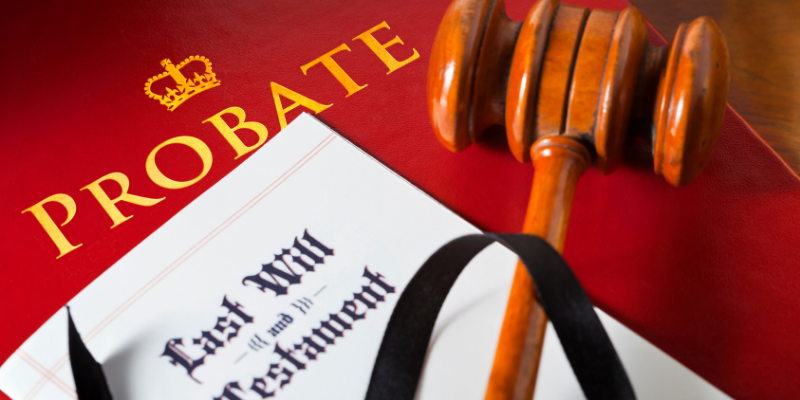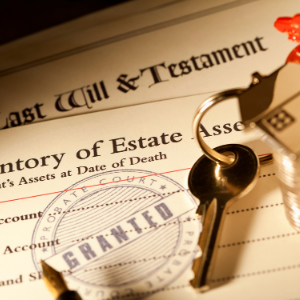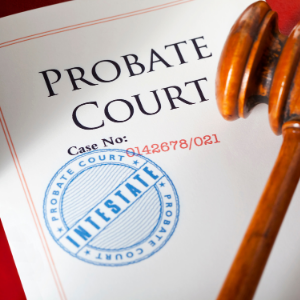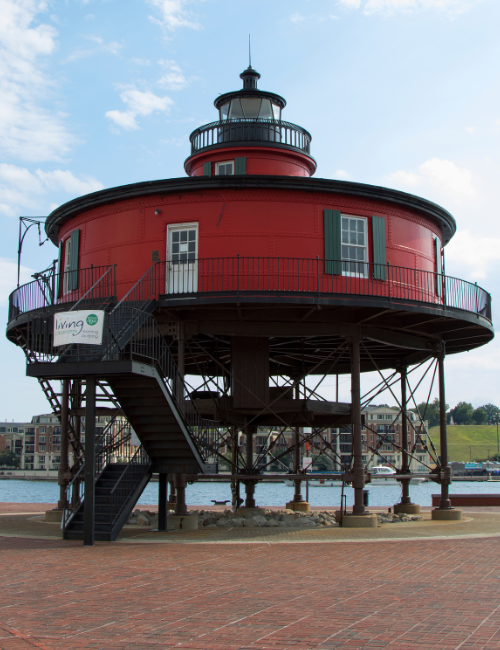
Navigating the sale of a probate house in Baltimore, MD, involves understanding a distinctive set of legal processes and requirements unique to Maryland. This guide aims to demystify the probate procedure, providing homeowners and heirs with practical insights for efficiently managing estate sales. From understanding court mandates to optimizing property value, selling a probate house can be a streamlined journey with the proper knowledge. Whether dealing with family estates or unexpected inheritances, our guide empowers you with the essential tools and expert advice to successfully navigate Maryland’s probate landscape.
Key Highlights
- Probate in Maryland administers estate distribution and debt settlement, requiring court involvement.
- Selling a probate property involves preparation, legal compliance, and understanding market dynamics.
- Probate court permission is mandatory before selling a house in the probate process.
- Engaging professional assistance in probate sales can prevent legal pitfalls and maximize value.
- Appraisals and timing impact financial outcomes; communication with beneficiaries is key.
Understanding Probate in Maryland
Probate in Maryland is a critical process that involves the legal administration of a deceased person’s estate, ensuring that all debts are paid and assets distributed according to the will or state law. This stage can seem daunting, especially for those unfamiliar with legal proceedings. This guide provides an in-depth look at the essentials of probate, offering clarity on what probate entails and a step-by-step explanation of the Maryland probate process. By understanding the nuances of probate and the role of the probate court, individuals can navigate the complexities of estate management with greater ease.
The Maryland Probate Process Explained

The Maryland probate process initiates with filing a petition in the probate court, marking the commencement of legal procedures to administer the estate. This petition, usually filed by an executor or personal representative named in the will, sets the legal machinery in motion. The probate court’s jurisdiction oversees this procedure, ensuring all steps adhere to Maryland probate rules. Following this filing, the executor must present the original will for the court’s validation, a critical step that legitimizes the executor’s authority to manage the estate.
Once the court accepts the petition and verifies the will, it issues official documents known as “Letters of Administration.” These letters empower the executor to act on behalf of the estate, officially beginning the administration process. A thorough inventory of the estate’s assets is conducted, which includes appraising real estate, personal property, and financial holdings. This step requires diligence in listing every asset and assessing its fair market value, as it forms the basis for settling debts and distribution.
Maryland’s probate process also mandates that executors efficiently notify all creditors of the estate’s proceedings. This is achieved through publication in a local newspaper, providing creditors with a limited timeframe to present any claims. If legitimate claims are made, the executor must evaluate and settle them before distributing the estate. Repaying debts is pivotal, ensuring that the estate complies with legal obligations and that beneficiaries receive unencumbered assets.
Throughout this time, the executor manages estate affairs, handling tasks such as closing bank accounts, transferring property titles, and managing ongoing financial obligations, including mortgage payments, taxes, and insurance. The goal is to maintain the estate’s integrity throughout the probate process. Importantly, executors are accountable to the probate court, providing reports and transparent accounting of all actions taken on behalf of the estate, reaffirming compliance with Maryland probate laws.
Finally, the distribution phase initiates with the estate’s obligations cleared and all asset values determined. Under court supervision, the executor allocates assets as directed by the will or Maryland intestacy statutes if no will exists. While often seen as complex, offering legal closure, ensuring that all parties’ rights are respected, and distributing the deceased’s legacy according to the probate process remains crucial to the law. Understanding this process empowers individuals to navigate their duties wisely.
Steps to Sell a Probate House in Baltimore
Selling a probate house in Baltimore, MD, involves a series of defined steps that require careful planning and execution. The process starts with proper preparation, ensuring the property is market-ready. Legal considerations also play a crucial role, as the house often remains in probate during the sale, meaning certain legal hurdles must be cleared before finalizing the transaction. This section will explore the intricacies of preparing a probate property for sale and address whether selling a property is possible while still under probate proceedings.
Preparation Before Listing the Property
When selling a probate house in Baltimore, the process is guided by market discipline and the statutory requirements inherent in estate administration. The priority is to ready the home so that it commands buyer interest. Therefore, A systematic inspection is warranted to catalog cosmetic and structural repairs, whose prompt resolution is likely to elevate market value in a city where discerning buyers expect transparency and quality. Follow-on activities—meticulous cleaning, boundary-realizing decluttering, and neutral staging —frame the residence in a way that allows prospective owners to envision their future while justifying higher purchase prices.
Having restored the physical premises, the executor compiles a secure and clearly ordered set of probate documentation. The probate files—will, Letters of Administration, and pertinent court directives—substantiate the executor’s mandate. Legally robust transparency increases buyer confidence and expedites proceedings by minimizing contingencies that might otherwise introduce costly delays. Additionally, they must cross-reference the estate inventory and formal appraisal to ensure the home’s valuation appears conservatively reasoned and synchronized with the established market. Such a valuation supports the initial asking figure and provides a defensible floor in subsequent negotiations.
Another key component of adequate preparation is a thorough understanding of Baltimore’s residential market environment. An informed appraisal of present market conditions, recent comparable sales, and localized neighborhood demand is essential in shaping appropriate pricing and targeted marketing tactics. Enlisting a brokerage professional specializing in probate sales provides a critical, sector-specific perspective. Such experts support property valuation, orchestrate marketing campaigns, and oversee negotiations, all while guaranteeing adherence to Maryland’s procedural guidelines governing probate transactions.
Simultaneously, continuous communication among all named beneficiaries is required. Articulating market data, projected timelines, and preferred pricing decisions to all interested parties mitigates conflicting expectations and, by extension, lessens the danger of disputes that can lead to protracted delays. Executors must promptly disclose to the beneficiaries any of the court’s procedural requirements that may influence the listing schedule, such as requested valuations or disclosure statements. Furthermore, the inevitability of court approval for any binding sales contract necessitates that executors, or their counsel, be prepared to supply the requisite data packages, thereby avoiding bottlenecks.
Executors can create a cohesive progression from listing through settlement by proactively addressing market insight and stakeholder clarity. The unique features and heightened scrutiny typical of probate dispositions need not translate to excessive friction, provided that comprehensive information, methodical timelines, and prompt responsiveness become the normative operating culture for all parties. When executed in this manner, the sale emerges as the quickest means of asset liquidation and as a transparent, benefit-maximizing transaction in the estate’s final, and often most public, stage.
Selling a probate house in Baltimore can feel overwhelming, but you don’t have to handle it alone. Local cash home buyers, like CR of Maryland I LLC, specialize in helping families through these situations by offering quick and hassle-free sales. Whether you need to sell your Baltimore house fast to cover estate debts or prefer a straightforward cash offer that avoids long market delays, CR of Maryland provides solutions that keep the process stress-free.
Can a House Be Sold While in Probate?
In Maryland, including Baltimore, selling property within the probate proceeding is permissible and frequently unavoidable when the estate must satisfy debts or allocate assets per the decedent’s intent. The transaction, however, is commensurate with strict adherence to formal probate procedure.
The executor or appointed personal representative begins by petitioning the Orphans’ Court for authorization to sell, providing the appellate court with the rationale for the divestiture, essential particulars about the property, and salient terms of the contemplated sale. The estate may proceed with the residence’s marketing only upon formal judicial endorsement.
Following receipt of the probate court’s permission, the representative may list the property; nevertheless, the sale is executed under several limitations intended to protect the estate and its creditors. The court may order an independent appraisal to ascertain the residence’s fair market value, precluding the estate from accepting an undervalued offer.
Prospective purchasers must be notified that their purchase is subject to court confirmation. When juxtaposed with conventional residential transactions, this presents an extended settlement timeline. Therefore, transparent communication with interested parties is indispensable for managing their expectations and minimising the risk of aborting the sale.
Marketing real property within a probate estate typically necessitates a dual focus: accentuating the asset’s intrinsic and market value while demystifying the procedural requirements mandated by statute and court rule. Agents with demonstrable probate sales experience bring value by diagnostically applying jurisdiction-specific statutes and dialing in on risk-alleviating listing and marketing techniques synchronizing with court and creditor expectations.
Such professionals curatively draft marketing plans that disseminate property information to the appropriate cross-sections of the market, leveraging print and digital channels, orchestrating retained offer review, and curating advance clearing with the supervising court, as vesting of authority immunizes bidding activity from subsequent challenge.
Negotiative phases of the process usually necessitate cataloguing supplementary qualifying documents, and orchestrating court anticipatory review, with petition supplementary closings serving to memorialize accepted offer, to justify price obtained, and to verify that every distributor beneficiary has mandated its overthrow.
When all of the legal and court-ordered conditions are met, the indexed title is removed from the probate asset, and it takes its place, as shown by the registered closing computing number. The fiduciary executor must uphold the dynamics and proofs in the operative statute throughout the execution corridor. This means that the passive surplus court must be able to read the manifest and audit, or else credit or a later discoverable claimer may reveal a subsequent accountability challenge.
While a property entering probate may appear burdensome, a clear grasp of the procedural framework and expert counsel can clarify the journey. When the estate executor in Baltimore meticulously adheres to statutory requisites, the disposal of the probate dwelling becomes a means of prudent estate administration. Prompt sales reduce carrying costs and create liquidity, expediting distribution to heirs and upholding the terms of the testament. Thoughtful navigation of the probate pathway thus endorses the fiduciary’s accountability and the deceased’s enduring intent.
Navigating the Legal Aspects of Probate Sales
Understanding the legal intricacies of probate sales is crucial for anyone selling a probate house in Maryland, particularly in Baltimore. This phase involves engaging with the probate court and avoiding potential legal pitfalls to ensure a smooth transaction. Whether you’re an executor or a beneficiary, grasping these legal elements will streamline the probate sale and safeguard the estate from unnecessary complications. By effectively interacting with legal processes and understanding common pitfalls, stakeholders can navigate the complexity of probate sales with greater assurance, leading to successful asset distribution.
Engaging with the Probate Court

Participation in the probate court agenda is indispensable in the Maryland probate property sale timeline. The action begins only when the executor, or the person designated as personal representative, files a petition with the probate court, seeking leave to convey the property under the estate administration. The court supervises the entire probate to guarantee compliance with statutory and common law principles.
This oversight requires the appointing judge to verify the executor’s formal credentials through the issuance of Letters of Administration, which empower the representative to manage and definitively liquidate estate assets. The law imposes an absolute hierarchy that no public or otherwise sale can take legal effect absent this preceding court sanction.
The court’s oversight goes beyond a perception of reform through supervision; it operates as a source of instructive legal protection. Each court petition obliges the executor to furnish the repository of the original last will with an accurate inventory of estate assets and independent appraisals estimating the market value of those assets.
Such submissions do not exist merely for concealment; they provide the factual base upon which all judicial transactions hinge. Engagement with the probate court proceeds most efficiently when petitioners champion thorough preparation, precluding clerical objections from lengthening the inventory process.
The administration proceeds to the required notification of every probable residual heir and every identifiable creditor target, announcing the court’s intention through a publication in the appropriate local newspaper. This strategy attains public notice coverage required by statute.
The law addresses force through imposing paper response deadlines, strictly for objections and claims that could endanger the estate’s liquidity. Court appearance is logistically intelligent; it resists complications that could extend executors’ liability and protect the estate from adversarial disputes.
The probate court determines disputes among beneficiaries regarding the terms of sale or the administration of particular estate assets. Executors must articulate a reasoned basis for their decisions and respond to inquiries from all interested parties.
Judicial mediation aligns the conflicting interests of the deceased, present beneficiaries, and outstanding creditors. Continuous communication with the court and meticulous documentation of all proceedings enable executors to satisfy their fiduciary responsibilities, mitigate liability exposure, and finalize probate-related sales.
Avoiding Common Legal Pitfalls
As integral as engaging with the probate court is, understanding and avoiding common legal pitfalls is vital to successfully navigating probate sales. These pitfalls often arise from misunderstandings regarding legal obligations or from procedural missteps by executors. One primary pitfall in probate sales is failing to follow the correct legal process for obtaining court approval. Maryland law requires that the executor petition the court before selling any property, with detailed documentation justifying the transaction. Neglecting this step can lead to significant delays and potential legal challenges.
Another common legal pitfall is inadequate communication among beneficiaries. Disputes among heirs can arise from misunderstandings about the sale’s terms or the distribution of proceeds. To avoid these issues, executors must maintain transparent and frequent communication, ensuring all parties are informed and agree on how the assets will be handled. Executors should obtain written consent from all beneficiaries regarding the sale terms to prevent future disagreements that might derail the process. Engaging a mediator in serious disputes can offer a neutral platform to resolve such issues amicably.
Mismanagement of estate taxes or debts is another significant pitfall. Executors must ensure that all estate taxes are calculated accurately and claims from creditors are settled before disbursing the proceeds from the sale. This requires diligent record-keeping and coordination with tax professionals to avoid underpayment or overpayment, which could result in legal repercussions. An accurate property appraisal is a basis for setting a fair market price and ensures compliance with tax obligations and the court’s requirements.
Lastly, overlooking the importance of specialized probate services can be detrimental. Professionals, such as real estate agents experienced in probate sales or probate attorneys, can provide invaluable assistance in navigating complex legal and market dynamics. Their expertise can help make informed decisions, from pricing strategies to court presentations, ultimately preventing costly mistakes.
Executors must recognize that tackling probate sales without adequate support exposes the estate to unnecessary risks and legal challenges. By utilizing comprehensive probate services and adhering to Maryland’s stringent legal requirements, executors can successfully navigate these pitfalls, ensuring a smoother transition and a favorable outcome for all parties involved.
Financial Considerations in Maryland Probate Sales
Selling a probate house in Baltimore, Maryland, introduces a range of financial considerations that can significantly impact the estate. Understanding the nuances of closing costs and the economic implications of selling an inherited property is crucial. These factors play pivotal roles in determining the overall profitability of the probate sale. By navigating these financial aspects wisely, executors can maximize the estate’s value, benefiting all involved parties and facilitating a smooth transition from inheritance to purchase.
Understanding Closing Costs
Effective estate management in Maryland requires a thorough understanding of the closing fees associated with a probate sale. These fees are incurred in the final stage of a real estate transfer and, although commonly overlooked, can significantly influence the estate’s cash flow. Maryland statute mandates multiple expenditures, payable at settlement, which vary with the property’s jurisdiction and assessed value. The fees likely to apply are title insurance premiums, appraisal costs, attorney charges, and ancillary costs. Each is required in order for a real estate probate sale in Baltimore to satisfy statutory and judicial standards.
Title insurance remains the foremost, and often the costliest, component of closing fees. The policy affirms that the title is free of encumbrances that might encumber the estate or the purchaser, thus shielding both from future claims. Therefore, the probable cost of the policy should be modeled early in the estate setup. The statutory appraisal fee is also incurred to substantiate the property’s valuation to the court and prospective bidders. Maryland probate rules mandate that an independent appraisal be performed and certified, with the associated expense directly allocated to the estate.
Attorney charges in Baltimore probate sales tend to be relatively elevated, as the statute mandates strict adherence to procedural directives. Legal counsels interpret statutory timelines, synthesize court filings, and mediate any disputes arising from the sale. Such services reduce the liability risk for personal representatives and expedite docket clearances, justifying their retention in the cost structure.
In addition to the costs above, executors might incur charges for the registry of the council or the circuit court, in which sale documents are filed, and real estate brokerage commissions when a licensed agent is retained to expedite the transaction. Although these ancillary charges augment overall closing costs, they are advisable strategic moves for maintaining timelines and minimizing legal challenges to the estate settlement.
Sufficient pre-sale disclosure of these additional expenses to prospective buyers is essential to prevent ambiguities and to facilitate an orderly settlement. Educating parties on the scope and magnitude of closing costs likewise renders the probate transaction more efficient and safeguards the financial integrity of the estate.
Financial Impact of Selling Inherited Property

In Maryland, the decision to probate and subsequently market inherited real estate possesses considerable fiscal consequences, necessitating thorough advance strategizing to preserve the estate’s and the beneficiaries’ maximum possible value. Whether compelled by liquidity requirements or broader estate-planning considerations, the sale directly influences the estate’s cash position and any resulting distribution patterns. A thorough comprehension of the attendant consequences positions Baltimore fiduciaries to exercise sound judgment and to set realistic expectations throughout the probate process.
Any transfer of inherited real estate mandates attention to potential tax liability. The most relevant exposure, capital gains tax, materializes if the transfer price surpasses the fair market value established at the decedent’s date of death. Therefore, Maryland residents must navigate federal and state regulatory frameworks that can diminish overall estate receipts. Engaging tax specialists to model, report, and comply safeguards the estate from unexpected exposure and protects beneficiaries’ eventual entitlements from unilateral reductions.
Validated and prudent valuation of the subject property presents equally urgent fiscal consequences. Maryland probate statutes obligate the fiduciary to secure a contemporaneous appraisal that verifies the price at the impending hearing and, in parallel, furnishes beneficiaries and potential bidders with transparent evidence. Elevated appraisal values may expand the buyer pool and induce pricing escalation through bidder competition, whereas excessive valuations can extend the docket by forcing price reductions in an awakening market. Consequently, to preserve the estate’s value and the fiduciaries’ reputation, estate appraisers’ assessments must reflect contemporaneous market evidence and property-specific obstacles.
The financial consequence of selling inherited real estate is sensitive to market activity and the closing date. Personal representatives must reconcile prevailing market conditions with the estate’s liquidity needs. Liquidation during a soft market risks reducing proceeds; conversely, delay until a period of strength may enlarge returns but interpose a longer interval before equitable distribution. Undersigned parties must also account for ongoing carrying costs, property taxes, public utilities, and maintenance—if the asset is allowed to linger while the market is monitored.
The distribution of an estate’s physical assets may affect beneficiaries unevenly, depending on their financial situations and the expectations they bring to the process. Harmonizing disparate perspectives and restraining discord demands deliberate disclosure, collective decision-making, and a governed cadence of dialogue. Instruction and constancy in conversation sensibly transmit the probable financial and practical consequences of the prospective sale while thus narrowing uncertainty and expediting the estate administration.
With Maryland probate sales, estates must reckon with transfer taxes, the accuracy of existing property assessments, temporality of market conditions, and the assorted combinatory anticipations of distributed beneficiaries. By learning and actively managing these domain contingencies, the representative can, consistent with his fiduciary obligation, improve estate proceeds in a demonstrably beneficial way to all stakeholders.
Practical Tips for Estate Sales in Baltimore County
Maximizing the value of estate sales in Baltimore County requires strategic planning and knowledge of key market dynamics. Sellers must consider various aspects to ensure successful transactions, from understanding Baltimore’s unique real estate environment to identifying the best methods for optimizing estate sales. This involves tapping into professional resources and understanding buyer expectations while keeping legal requirements at the forefront. Sellers can use these tips to enhance property value and secure profitable, hassle-free sales.
Another option that many families find helpful is working directly with a local cash buyer. CR of Maryland I LLC understands the urgency and sensitivity of probate situations, offering a fast, respectful solution for heirs who want to move forward. If you’re hoping to sell your Catonsville house fast, CR of Maryland can provide a cash offer and flexible closing timeline that aligns with your needs, saving you from the uncertainty of traditional listings.
How to Optimize Estate Sales for Best Value

Systematic planning, community involvement, and judicious use of specialist professional resources maximize Baltimore County estate sales value. An expert understanding of the county’s housing market is key. Baltimore County has significant neighborhood-specific pricing differences, so tracking trends and comparing housing transactions is essential. With such intelligence, a competitive but moral price can be set. Real estate-focused brokers can find convincing anomalies or corrections that strengthen a seller’s position by researching and networking in the nearby subdivisions.
The estate’s appearance and hidden features attract Dollar signs. A systematic program of egress, cleansing, and rapid, small repair changes ambient perception: caretakers’ focal, emotional compassion belief adds peaceful resolution to price. When daily life is cleared from the property, space is rationalized, and space, throughput, and neighborhood are valued. Return can be assessed for larger restorations, and staging is becoming a real, emotional purchasing variable. Well-staged acumen and empirical bypass can lead to several offers.
Engaging buyers demands a polished strategy that combines aesthetics and substance. Marketing materials like internet listings and brochures need high-resolution images and clear explanations. Professional photos and well-written narratives about architectural details, historical significance, or unique amenities tell a tale that numbers cannot. Open houses allow purchasers to experience the property’s environment, which virtual technologies cannot imitate and often sway hesitant buyers.
Adding flexible funding options increases the candidate pool. Cash buyers want quick closings, allowing sellers to present a simple transfer as a strategic concession. In a competitive market, admitting a preference for all-cash solutions differentiates the offering and sets a practical negotiation framework. Probate proceedings must be detailed to establish seller integrity, prevent post-offer disputes, boost buy-side confidence, and reduce post-offer withdrawal.
Purposeful negotiations are necessary to optimize sales return, and seller-friendly discourse results from understanding the buyer’s demands and using well-structured approaches. The quoted price must be supported by trustworthy analytical information, such as current sales comparables and applicable professional appraisals. Open, proactive communication with the seller on the property’s legal status and resort return projections is also essential. Candor reduces customer reluctance, speeds up the transaction, and boosts pricing.
Integrating the sale into civic activity can boost perceived value. Civic-minded buyers are moved by the seller’s involvement in local charity, community festivities, and volunteerism. Informing the sales effort through local leadership or alumni networks may reveal consumers naturally driven to live there, expediting match-making.
Success in the Baltimore County estate-conveyance market requires careful planning, market intelligence, and respectful relationships with buyers. By focusing on these strategic levers, the estate’s representatives can achieve superior financial results with a simple, transparent closing procedure, benefiting the estate and its residual beneficiaries.
Selling a probate house in Baltimore, MD, involves several complexities, but understanding the probate process can simplify your journey. Whether handling a loved one’s estate or working as an executor, consider consulting with a real estate professional experienced in probate transactions. Their expertise can provide valuable insights, ensuring a smoother sales process while maximizing the estate’s value. By familiarizing yourself with Maryland’s specific laws and timelines, you can navigate the requirements more effectively and make informed decisions that align with your financial and emotional needs.
No matter the situation, CR of Maryland I LLC makes selling a house simple by offering fair cash offers, flexible closings, and local expertise that helps families in Baltimore and nearby Maryland communities move forward with confidence. Contact us at (443) 278-2743 today to get your offer!
Helpful Baltimore Blog Articles
- Selling Your House Without A Realtor In Baltimore, MD
- Selling An Inherited House In Baltimore, MD
- Navigating Home Sales During Divorce In Baltimore, MD
- Selling A House With Tenants In Baltimore, MD
- Tax Implications Of Selling Your Home In Baltimore, MD
- Selling A Baltimore, MD, Home With Title Issues
- Sell A Foreclosure House In Baltimore, MD
- Selling A Baltimore, MD Home Needing Repairs
- Selling a Probate House in Baltimore, MD
- Tips to Sell Your Baltimore, MD House Amid Mold Concerns
- How to Remove a Name from a Deed in Baltimore, MD
- How to Sell a Fire-Damaged House in Baltimore, MD
- Capital Gains Tax After Selling a House in Baltimore, MD
